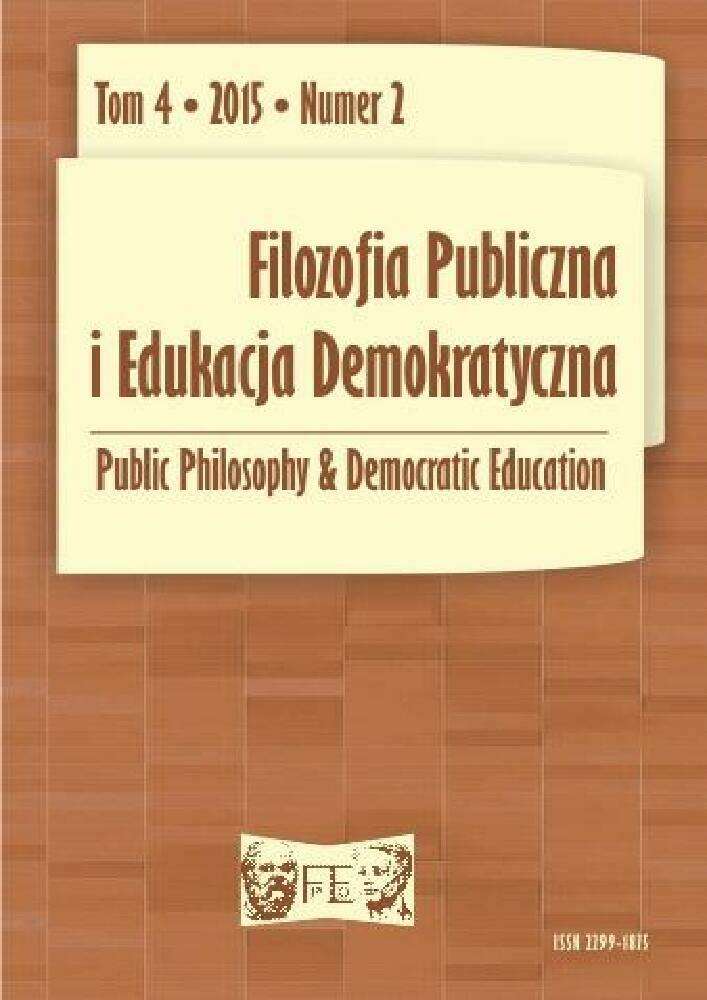Abstrakt
It is difficult to find tools useful for effective teaching ethics focused on persons from disadvantaged groups, which have conflict with the law. Traditional lecture seems to be a boring talk. Theatre can be a more favourable method. An article describes the idea of functioning of the Theatre of Moral Anxiety, founded by author of the article. Actors in this theatre, ‘angry young man’, carry out spectacles based on scripts written explicitly for them, often related to their biographies. Young man recognize and break their own limitations, learn how to cooperate and reveal the world their better human face: sensitivity and involvement. Author shows, that theatre can be wonderful tool of ethical education, raising self-esteem and self-confidence of persons participating in a performance.
Bibliografia
Cialdini Robert, Wywieranie wpływu na ludzi − teoria i praktyka, GWP Gdańsk 2009.
Goleman Daniel, Inteligencja emocjonalna, Media Rodzina, Poznań 1997.
Haidt Jonathan., Prawy umysł. Dlaczego dobrych ludzi dzieli religia i polityka?, Smak Słowa, Sopot 2014.
Hare Robert D., Psychopaci są wśród nas, Znak, Kraków 2010.
Konopczyński Marek, Metody twórczej resocjalizacji, PWN, Warszawa 2008.
Lorand, Ruth, On the Nature of Art, Dvir, Tel Aviw 1991.
Platon, Obrona Sokratesa, przeł. Władysław Witwicki - różne wydania.
Pospiszyl Kazimierz, Psychopatia, Żak, Warszawa 2000.
Schonmann Shifr., Theatre As a Medium for Children and Young People. Images and Observations. Springer, Dordrecht 2006.
Licencja
Prawa autorskie (c) Autorzy zachowują prawa autorskie i prawa do publikacji swoich artykułów w tym czasopiśmie, przyznając czasopismu prawo do ich rozpowszechniania na warunkach CC BY-NC-ND 4.0
